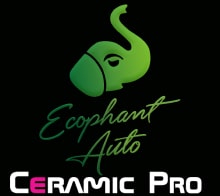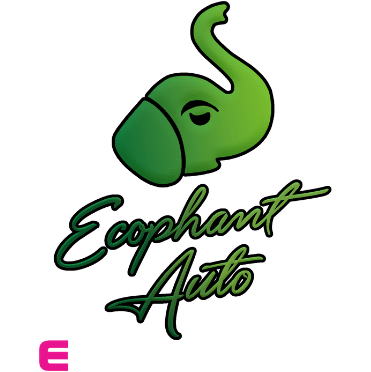If you own a car, you know that maintaining its appearance is crucial for its longevity and resale value. One aspect of car maintenance that often gets overlooked is paint correction.
Many car owners wonder whether they should attempt the paint correction process themselves or leave it to professionals. In this article, we will explore the pros and cons of each approach so you can make an informed decision about which is the better option for you.
What is Paint Correction?
Paint correction is the procedure used to fix surface flaws in a car’s paint finish. These flaws might come in the form of tiny scratches, swirls, wet spots, or oxidation. The process involves using a machine polisher with various pads and abrasive compounds to level the surface of the paint and remove the imperfections. After the correction process, the entire vehicle will have a smoother and shinier finish.
DIY Paint Correction: Pros and Cons
Pros
Cost-effective: DIY paint correction can save you money because you don’t have to pay for professional services.
Control: You have complete control over the process, including the products and techniques used.
Learning experience: DIY paint correction can be a great learning experience that can help you develop a new skill.
Cons
Risk of damage: Without proper knowledge and experience, DIY paint correction can cause irreversible damage to your car’s paint job.
Time-consuming: DIY paint correction can be time-consuming, especially if you’re not experienced.
Equipment and materials: DIY paint correction requires specific equipment and materials, which can be expensive to purchase.

Professional Paint Correction: Pros and Cons
Pros
Expertise: Professional detailers have the knowledge and experience to perform paint correction safely and effectively.
Time-saving: Professional paint correction can be completed much faster than DIY.
Quality results: Professional detailers use high-quality products and equipment, resulting in a better finish.
Cons
Cost: Professional paint correction can be expensive, especially for higher-end services.
Lack of control: You don’t have control over the products and techniques used by the professional detailer.
Dependence: If you rely on professional services, you may need to schedule appointments and wait for availability.
Factors to Consider When Choosing Between DIY and Professional Paint Correction
Skill Level
DIY paint correction requires a certain level of skill and experience especially if it’s an advanced paint correction process we’re talking about. If you’re new to paint correction, it’s best to start with a small area and practice your technique. If you’re not confident in your skills, it’s better to leave it to the professionals.
Time and Effort
DIY paint correction can be time-consuming, especially if you’re new to the polishing process. Professional detailers can complete the job much faster, allowing you to use your time for other activities.
Equipment and Materials
DIY paint correction requires specific equipment and materials, which can be expensive to purchase. Professional detailers have access to professional-grade equipment and products, which can provide better results than DIY alternatives.
Cost
DIY paint correction can be a cost-effective option if you already own the necessary equipment and materials. However, if you need to purchase everything, it can be more expensive than you expect. Professional paint correction can be costly, but it can provide a higher-quality finish and save you time and effort in the long run.
Safety
DIY paint correction can be dangerous if you’re not careful. The machines and products used can cause physical harm if mishandled. Professional detailers are trained to use the equipment safely and take appropriate safety measures to protect themselves and their car.
Desired Results
If you’re looking for a specific finish, such as a mirror-like shine, it may be best to leave it to the professionals. They have access to high-quality products and advanced techniques that can achieve the desired results.
Condition of the Paint
If your car’s paint job is in poor condition, it may be best to hire a professional. They can assess the damage and recommend the best course of action, whether it’s paint correction, touch-up paint, or a full paint job.
Time Constraints
If you have a busy schedule and limited time, it may be more convenient to hire a professional. They can complete the job quickly and efficiently, allowing you to focus on other responsibilities.
Warranty
Some professional detailers offer a warranty or guarantee for their paint correction services. This can provide peace of mind and protection in case something goes wrong with the correction process.
Considering these factors, you can make a more informed decision about whether to attempt paint correction yourself or hire a professional.
Deciding whether to do paint correction yourself or hire a professional ultimately depends on your skill level, time availability, and budget. If you have experience and the necessary equipment, DIY paint correction can save you money and provide a sense of accomplishment.
If you’re new to the process, lack time or equipment, or want the best results possible, professional paint correction is the better option. Just be aware of the costs and research the detailer’s reputation and experience before choosing a professional service.
FAQs

Is it safe to attempt DIY paint correction?
It can be safe if you have experience and follow the proper techniques. Without experience, you risk damaging your car’s paint job.
How much does professional paint correction cost?
The cost can vary depending on the detailer’s experience, the services provided, and the condition of the car’s paint job. On average, it can cost between $500 and $1,000.
How often should I get my car’s paint corrected?
It depends on how often you wash and maintain your car. Paint correction can last for several months to a few years, depending on the car’s usage and exposure to environmental factors.
Can paint correction remove deep scratches?
It depends on the severity of the scratches. Light scratches can be removed, but deep scratches may require more intensive repair methods.
Will paint correction damage my car’s paint job?
If done incorrectly, paint correction can cause irreversible damage to your car’s paint job. It’s essential to have the proper knowledge and experience or hire a professional to avoid damaging your car.
How long does paint correction take?
The time it takes to complete paint correction can vary depending on the severity of the imperfections and the size of the car. Professional paint correction can take anywhere from a few hours to a full day, whereas DIY paint correction can take several hours to a whole day.
Can I do paint corrections on a new car?
Yes, you can perform paint correction on a new car to improve its appearance and protect the paint job. Be sure to use the proper techniques and products to avoid causing damage to the car’s paint.
What are some common mistakes to avoid when doing DIY paint correction?
Some common mistakes include using the wrong products, using too much pressure, using the wrong techniques, and working on a hot or dirty surface. It’s essential to research and follow proper techniques and safety precautions when attempting DIY paint correction.
How do I choose a professional detailer for paint correction?
When choosing a professional detailer, research their experience and reputation. Look for reviews and ratings from past customers, and ask for examples of their previous work. It’s also important to ensure they use high-quality products and have the necessary certifications and insurance.
What is the difference between paint correction and paint protection film (PPF)?
Paint correction is the process of removing surface imperfections from a car’s paint job, while paint protection film is a clear film that is applied to the car’s surface to protect it from scratches, rock chips, and other damage. While both methods can improve a car’s appearance and protect its paint, PPF offers more long-term protection and can be more expensive than paint correction.

